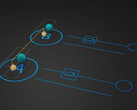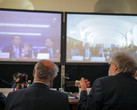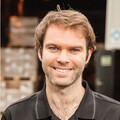Quantum computing is mind-boggling, especially when trying to get your head around the concept that something doesn’t have to be in a fixed state. Traditional binary computing uses Boolean functions where every bit is either a ‘0’ (false) or a ‘1’ (true), and combinations of these bits comprise our data. The idea that every bit is in one of those two states is easier to visualize and easier to programme. However, in Quantum computing we use quantum bits (qubits), which means that every bit can exist in all possible states simultaneously — in this case, it means that each bit can be both a ‘0’ and a ‘1’ at the same time.
Now imagine the difficulty involved in programming for that and the additional knowledge that the developer would need. Microsoft wants to alleviate this problem, and they have created a new programming language specifically for quantum computing. It still requires the developer to understand how qubits and other quantum concepts work, but it acts as an integration agent for traditional programming languages, meaning that languages such as Python, Java, or C# could be used to build large parts of the applications.
Quantum computing development has sped up rapidly in the last few years with companies such as Microsoft, IBM, and Google getting involved, in addition to smaller companies such as Rigetti Computing. While it isn’t particularly well suited to traditional programme execution when compared to the supercomputers currently in use, the way in which a quantum computer processes data makes them ideal for running complex models for research on diseases, climate, and AI among other purposes.
Microsoft's new language will involve heavy integration with the Visual Studio IDE, and is designed to work in both actual quantum computing, and virtualized test environments.
Loading Comments
I grew up in a family surrounded by technology, starting with my father loading up games for me on a Commodore 64, and later on a 486. In the late 90's and early 00's I started learning how to tinker with Windows, while also playing around with Linux distributions, both of which gave me an interest for learning how to make software do what you want it to do, and modifying settings that aren't normally user accessible. After this I started building my own computers, and tearing laptops apart, which gave me an insight into hardware and how it works in a complete system. Now keeping up with the latest in hardware and software news is a passion of mine.
> Expert Reviews and News on Laptops, Smartphones and Tech Innovations > News > News Archive > Newsarchive 2017 09 > Microsoft creates a new coding language for quantum computers
Craig Ward, 2017-09-28 (Update: 2026-02-18)















